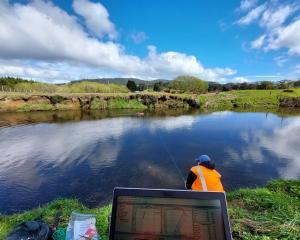
Primary health collective WellSouth sent a survey to 1300 staff at 78 general practices in the region in the first quarter of 2024.
More than half of the recipients responded.
Of those, 30% of respondents said they were considering leaving general practice in the next three to five years, due to retirement, burnout or other reasons.
WellSouth chief executive Andrew Swanson-Dobbs said comments about burnout were of concern.
"We know primary care is having a tough time.
"The survey comments were by far the most telling, with people talking about burnout, lack of money and concern for patients and their inability to help patients due to workforce pressures."
Dunedin City GP Dr Adrian Hindes said the results were unsurprising and reflected the demographic "gap" in GPs.
While he was not considering retirement himself, many of his colleagues were, he said.
"If you look at the demographics of GP practices, you have quite a heavy weighting towards people in their 50s, 60s, even in the early 70s and then there’s a bit of a gap where there’s not so many people.
"There was this period of time over about 10 to 15 years where they just weren’t getting enough GPs coming through during the training and so that’s getting reflected now in terms of retirements and stretched resources."
Dr Hindes said the country was starting to train more GPs, but it was still "clearly not enough" because the proportion of older GPs aged 60-75+ had increased dramatically over the past decade.
"You’re getting parts of the country at the moment where it’s really beginning to pinch and people just don’t have that access to GPs."
Other concerns were around funding and access to resources as well as workload, Dr Hindes said.
Arranging after-hours care services was a "particular bugbear", he said.
"After-hours can be super busy and it can kind of leave practitioners feeling really jaded and unable to ... really help out their patients the next day."
Other issues included lack of specialists, which meant "we’re ending up having to do a lot more in general practice than we would normally".
Feedback was primarily from non-clinical staff, for example practice managers and administrators, followed by GPs and then nurses, nurse practitioners and pharmacists.
The split of practices represented was 37% rural and 63% urban.
WellSouth intends to survey primary care providers — predominantly general practice — again this year to get comparative data.












